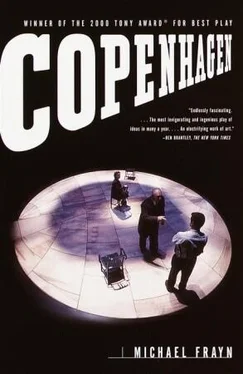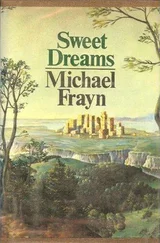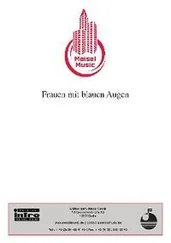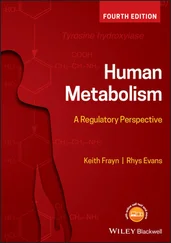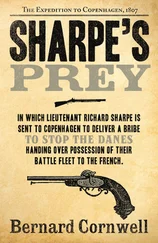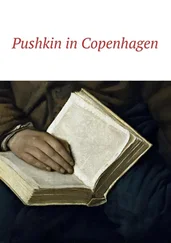Bohr That was the intention.
Heisenberg You never had the slightest conception of what happens when bombs are dropped on cities. Even conventional bombs. None of you ever experienced it. Not a single one of you. I walked back from the centre of Berlin to the suburbs one night, after one of the big raids. No transport moving, of course. The whole city on fire. Even the puddles in the streets are burning. They’re puddles of molten phosphorus. It gets on your shoes like some kind of incandescent dog-muck — I have to keep scraping it off — as if the streets have been fouled by the hounds of hell. It would have made you laugh — my shoes keep bursting into flame. All around me, I suppose, there are people trapped, people in various stages of burning to death. And all I can think is, How will I ever get hold of another pair of shoes in times like these?
Bohr You know why Allied scientists worked on the bomb.
Heisenberg Of course. Fear.
Bohr The same fear that was consuming you. Because they were afraid that you were working on it.
Heisenberg But, Bohr, you could have told them!
Bohr Told them what?
Heisenberg What I told you in 1941! That the choice is in our hands! In mine — in Oppenheimer’s! That if I can tell them the simple truth when they ask me, the simple discouraging truth, so can he!
Bohr This is what you want from me? Not to tell you what the Americans are doing but to stop them?
Heisenberg To tell them that we can stop it together.
Bohr I had no contact with the Americans!
Heisenberg You did with the British.
Bohr Only later.
Heisenberg The Gestapo intercepted the message you sent them about our meeting.
Margrethe And passed it to you?
Heisenberg Why not? They’d begun to trust me. This is what gave me the possibility of remaining in control of events.
Bohr Not to criticise, Heisenberg, but if this is your plan in coming to Copenhagen, it’s … what can I say? It’s most interesting.
Heisenberg It’s not a plan. It’s a hope. Not even a hope. A microscopically fine thread of possibility. A wild improbability. Worth trying, though, Bohr! Worth trying, surely! But already you’re too angry to understand what I’m saying.
Margrethe No — why he’s angry is because he is beginning to understand! The Germans drive out most of their best physicists because they’re Jews. America and Britain give them sanctuary. Now it turns out that this might offer the Allies a hope of salvation. And at once you come howling to Niels begging him to persuade them to give it up.
Bohr Margrethe, my love, perhaps we should try to express ourselves a little more temperately.
Margrethe But the gall of it! The sheer, breathtaking gall of it!
Bohr Bold skiing, I have to say.
Heisenberg But, Bohr, we’re not skiing now! We’re not playing table-tennis! We’re not juggling with cap-pistols and non-existent cards! I refused to believe it, when I first heard the news of Hiroshima. I thought that it was just one of the strange dreams we were living in at the time. They’d got stranger and stranger, God knows, as Germany fell into ruins in those last months of the war. But by then we were living in the strangest of them all. The ruins had suddenly vanished — just the way things do in dreams — and all at once we’re in a stately home in the middle of the English countryside. We’ve been rounded up by the British — the whole team, everyone who worked on atomic research — and we’ve been spirited away. To Farm Hall, in Huntingdonshire, in the water-meadows of the River Ouse. Our families in Germany are starving, and there are we sitting down each evening to an excellent formal dinner with our charming host, the British officer in charge of us. It’s like a pre-war house-party — one of those house-parties in a play, that’s cut off from any contact with the outside world, where you know the guests have all been invited for some secret sinister purpose. No one knows we’re there — no one in England, no one in Germany, not even our families. But the war’s over. What’s happening? Perhaps, as in a play, we’re going to be quietly murdered, one by one. In the meanwhile it’s all delightfully civilised. I entertain the party with Beethoven piano sonatas. Major Rittner, our hospitable gaoler, reads Dickens to us, to improve our English.… Did these things really happen to me …? We wait for the point of it all to be revealed to us. Then one evening it is. And it’s even more grotesque than the one we were fearing. It’s on the radio: you have actually done the deed that we were tormenting ourselves about. That’s why we’re there, dining with our gracious host, listening to our Dickens. We’ve been kept locked up to stop us discussing the subject with anyone until it’s too late. When Major Rittner tells us I simply refuse to believe it until I hear it with my own ears on the nine o’clock news. We’d no idea how far ahead you’d got. I can’t describe the effect it has on us. You play happily with your toy cap-pistol. Then someone else picks it up and pulls the trigger … and all at once there’s blood everywhere and people screaming, because it wasn’t a toy at all.… We sit up half the night, talking about it, trying to take it in. We’re all literally in shock.
Margrethe Because it had been done? Or because it wasn’t you who’d done it?
Heisenberg Both. Both. Otto Hahn wants to kill himself, because it was he who discovered fission, and he can see the blood on his hands. Gerlach, our old Nazi co-ordinator, also wants to die, because his hands are so shamefully clean. You’ve done it, though. You’ve built the bomb.
Bohr Yes.
Heisenberg And you’ve used it on a living target.
Bohr On a living target.
Margrethe You’re not suggesting that Niels did anything wrong in working at Los Alamos?
Heisenberg Of course not. Bohr has never done anything wrong.
Margrethe The decision had been taken long before Niels arrived. The bomb would have been built whether Niels had gone or not.
Bohr In any case, my part was very small.
Heisenberg Oppenheimer described you as the team’s father-confessor.
Bohr It seems to be my role in life.
Heisenberg He said you made a great contribution.
Bohr Spiritual, possibly. Not practical.
Heisenberg Fermi says it was you who worked out how to trigger the Nagasaki bomb.
Bohr I put forward an idea.
Margrethe You’re not implying that there’s anything that Niels needs to explain or defend?
Heisenberg No one has ever expected him to explain or defend anything. He’s a profoundly good man.
Bohr It’s not a question of goodness. I was spared the decision.
Heisenberg Yes, and I was not. So explaining and defending myself was how I spent the last thirty years of my life. When I went to America in 1949 a lot of physicists wouldn’t even shake my hand. Hands that had actually built the bomb wouldn’t touch mine.
Margrethe And let me tell you, if you think you’re making it any clearer to me now, you’re not.
Bohr Margrethe, I understand his feelings …
Читать дальше
